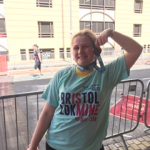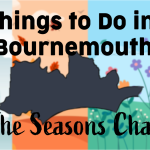 Produced by Guest blogger
Produced by Guest blogger
This is a guest blog by Sophie Robertson, current PGDip Mental Health Nursing student who recently had her dissertation from her Psychology degree at BU published in the Journal of Eating Disorders.
 My student journey started by enrolling onto the BSc (Hons) Psychology degree course at Bournemouth University. I always loved the idea of helping people by maybe becoming a counsellor or psychologist. However, after completing my placement year on an inpatient adult acute mental health ward in Somerset this all changed!
My student journey started by enrolling onto the BSc (Hons) Psychology degree course at Bournemouth University. I always loved the idea of helping people by maybe becoming a counsellor or psychologist. However, after completing my placement year on an inpatient adult acute mental health ward in Somerset this all changed!
I fell in love with mental health nursing and helping people in the acute phase of their illness. With the support of BU and St Andrews ward in Wells I decided to complete my final year of my psychology degree while working 2 days a week within Somerset partnership in order to obtain a sponsorship.
I completed my dissertation with the support of my work colleagues and supervisor at BU. When my supervisor suggested the topic of Orthorexia for my dissertation, I knew that I would enjoy my final few months studying at BU as after covering eating disorders during my undergraduate degree I had always wanted to study eating disorders in more depth. I was lucky to have a supervisor who understood my situation with living and working in Somerset and was so helpful in providing support as and when needed!
Due to previously working with people who suffered from eating disorders I really wanted to create a piece of work of which would help people to understand potential new eating habits of which could result in an eating disorder.
I knew this research would be beneficial due to the large focus society today has on healthy eating. When my supervisor contacted me and stated the paper would be published, I was shocked! I’m glad that Orthorexia is now being recognised and understood among society.
This research is key as it identified that individuals with Orthorexic tendencies may share similar difficulties with emotions compared to other eating disorders. While also highlighting the need for a specific tool to be developed for orthorexic nervosa characteristics to be measured more accurately.
Working as a health care assistant on St Andrews ward and watching the nursing team make life changing decisions for the better of the service user made me fall in love with nursing! Witnessing nurses advocate for the service user and the impact mental health nurses can have on the recovery of people made me want to be a nurse and this is why I decided to enrol onto the PG Dip course at BU. I decided to stay with BU due to the support and guidance the University has offered me over the last 4 years!
I’ve also opted in to work on the frontline as a student, and have been working as a health care assistance (HCA) since the crisis started. My role as a health care assistance taught me vital skills of which will help shape the nurse I want to become!
Health care assistance are the eyes and ears of the wards, they spend the most time interacting with service users. Health care assistance have many roles including recording patients’ physical conditions by taking vital signs and observing behaviour. If there is a change in behaviour, HCA’s will provide support and report back to the nurse in charge with any concern they have of which the nurse in charge will investigate.
Working as a HCA I was able to experience first-hand the importance of HCA’s and what their job role entails. I am so proud to have worked as a HCA and believe this will help to shape the nurse I will become.
Sophie Robertson
 Studying Nursing at BU as a mature student
Studying Nursing at BU as a mature student Poppy shares why she chose Mental Health Nursing as her career path
Poppy shares why she chose Mental Health Nursing as her career path







